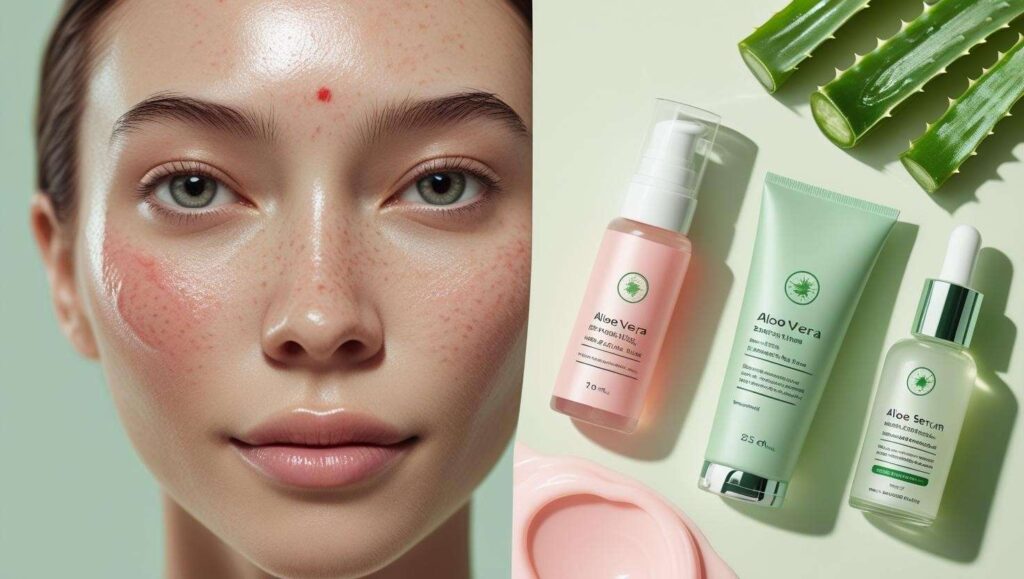Ever applied a new serum, cream, or mask and felt a burning or stinging sensation? You’re not alone. Many people wonder: “Why does my skin burn after skincare?” The answer usually lies in ingredients, sensitivity, or how you apply products. Let’s break it down.
Is Skin Burning Normal After Skincare?
A mild tingling isn’t always harmful, especially with active ingredients like exfoliating acids or retinol. But intense burning, redness, or irritation means your skin barrier is upset, and you should pay attention. For an overview of skin reactions, see American Academy of Dermatology’s guide to irritated skin.
Common Reasons Your Skin Burns After Skincare
1. Harsh Active Ingredients
Products with retinol, AHAs (glycolic, lactic acid), BHAs (salicylic acid), or vitamin C can cause stinging, especially if your skin isn’t used to them. More on AHAs and BHAs is available at the Paula’s Choice Skincare Ingredient Dictionary.
2. Damaged Skin Barrier
Over-exfoliation, harsh cleansers, or skipping moisturizer can weaken your skin’s protective barrier, making it more sensitive. Learn about skin barrier repair from the Barrier Repair Foundation.
3. Allergic Reactions
Fragrance, essential oils, or preservatives can trigger burning, itching, or redness if you’re allergic. The Mayo Clinic explains contact dermatitis and allergies.
4. Mixing Incompatible Products
Using too many strong products at once (like retinol + acids + vitamin C) can overwhelm your skin. Tips on product layering can be found at Cleveland Clinic’s skincare advice page.
5. Dry or Sensitive Skin
If your skin is naturally dry or sensitive, even mild products can cause discomfort. The National Eczema Association offers guidance for sensitive skin care.
What to Do If Your Skin Burns After Skincare
- Stop using the product immediately if burning is intense.
- Rinse with cool water to calm irritation.
- Apply a soothing moisturizer (look for ingredients like aloe vera, ceramides, or hyaluronic acid). Cetaphil’s guide on moisturizers is helpful.
- Skip strong actives for a few days until your skin recovers.
- Always use sunscreen since a damaged skin barrier is more vulnerable to UV rays. Read about sunscreen importance from the Skin Cancer Foundation.
How to Prevent Burning in the Future
- Patch Test New Products – Try on a small area first. Learn about patch testing at DermNet NZ.
- Introduce Actives Slowly – Start 2–3 times a week, then build up.
- Moisturize Regularly – A healthy barrier equals less irritation.
- Avoid Product Overload – Stick to a simple routine.
- See a Dermatologist – If irritation persists or worsens. The American Academy of Dermatology can help find professionals near you.
FAQs: Burning After Skincare
A little tingling with exfoliants or retinol is common, but strong burning is not normal. Here’s a Healthline article on skincare irritation.
Yes—pause and see how your skin reacts. Reintroduce slowly if mild, or stop completely if irritation continues.
Yes, but start with a lower strength, use fewer times per week, and always moisturize after. The Mayo Clinic’s guide to retinol offers safe usage tips.
Final Thoughts
If you’ve ever asked, “Why does my skin burn after skincare?”, the short answer is: your skin may be sensitive, over-exfoliated, or reacting to certain ingredients. While a little tingling is normal, burning that’s painful or long-lasting means your skin needs a break.
Listen to your skin, keep your routine simple, and when in doubt, check with a dermatologist. Healthy skin should feel comfortable, not painful.




